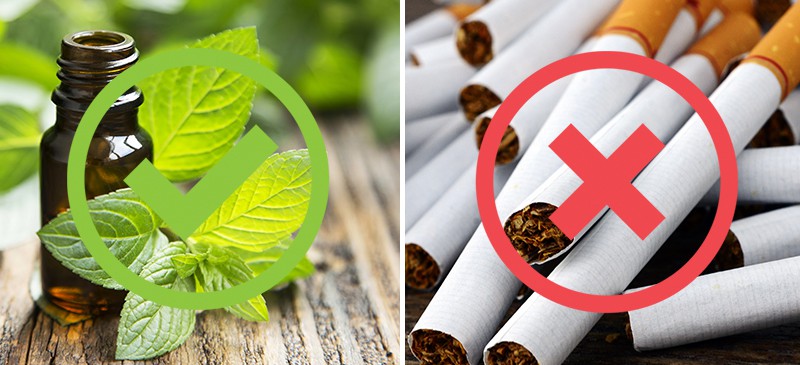This Dr. Axe content is medically reviewed or fact checked to ensure factually accurate information.
With strict editorial sourcing guidelines, we only link to academic research institutions, reputable media sites and, when research is available, medically peer-reviewed studies. Note that the numbers in parentheses (1, 2, etc.) are clickable links to these studies.
The information in our articles is NOT intended to replace a one-on-one relationship with a qualified health care professional and is not intended as medical advice.
This article is based on scientific evidence, written by experts and fact checked by our trained editorial staff. Note that the numbers in parentheses (1, 2, etc.) are clickable links to medically peer-reviewed studies.
Our team includes licensed nutritionists and dietitians, certified health education specialists, as well as certified strength and conditioning specialists, personal trainers and corrective exercise specialists. Our team aims to be not only thorough with its research, but also objective and unbiased.
The information in our articles is NOT intended to replace a one-on-one relationship with a qualified health care professional and is not intended as medical advice.
Is Menthol Bad for You? Possible Benefits vs. Dangers
September 1, 2019

Menthol can naturally be found in peppermint oil and spearmint oil. It’s the component that gives both of these herbs their cooling effects.
You’ve probably experienced this sensation before if you’ve tasted menthol cough drops or used a refreshing mouthwash.
It can also be synthetic and found in products that are clearly health hazardous like menthol cigarettes. These cigarettes were originally marketed as a safer and cleaner tobacco product that could even help clear up coughs (how ironic, right?).
According to FDA Commissioner Scott Gottlieb, menthol cigarettes, menthol vape juice and other flavored tobacco products are contributing to the “disturbing trend of youth nicotine use” today. More than ever, it seems like the proposed ban on menthol cigarettes is warranted, especially since some experts estimate that during the next 40 years, it could prevent 300,000 to 600,000 deaths.
So is menthol bad for you? Let’s take a closer look at a substance that appears in things you may be using on a daily basis (and maybe you don’t eve know it).
What Is Menthol?
Menthol, also called peppermint camphor, has a strong minty, cooling odor and taste. It is an organic compound that can be obtained from peppermint and other mint varieties.
It can also be man-made or synthetic. Menthol structure is a white or colorless crystalline solid.
What does it do to the body? When ingested, inhaled or topically applied to the skin, the user experiences a cooling sensation.
Is your skin or body temperature being lowered? No, but it is able to induce the psychophysical sensation of cold by interacting with the part of the sensory nervous system related to cold detection
Uses and Products
There are many common uses of menthol in products today as a flavor, cooling agent and/or disinfect.
Examples of products that contain it include:
- toothpaste
- mouthwash
- chewing gum
- candy
- liqueur
- menthol cigarette
- menthol cigar
- menthol medicine (including topical agents for pain relief as well as nasal inhalers and cough drops)
- various cosmetics
Sneakers called “menthol 10s“do not contain it, but they were created to send a message to the tobacco industry according to the creator.
Menthol Crystals
What are menthol crystals used for? This concentrated form is commonly added to the following products:
- cosmetics
- medicated creams, balms and salves
- cooling gels
- medicate oils
- throat and cough lozenges
- oral/throat sprays
- foot sprays
- toothpaste
- mouthwash
- gum
- shampoo
- conditioner
- shaving cream
Menthol Oil
This oil is also sold and sometimes used for external treatment of pain, flu, sinus congestion and allergy symptoms.
Is It Bad for You?
In high doses, menthol side effects may include drowsiness, abdominal pain, convulsions, nausea, vomiting, vertigo, ataxia and coma. For some people, it may cause allergic reactions and symptoms such as headache, flushing or contact dermatitis.
It’s possible to be allergic to it so discontinue use and seek urgent medical attention if you have signs of an allergic reaction, such as difficulty breathing, hives and/or swelling of your face, lips, tongue or throat.
Avoid getting topical products in the eyes, nose or mouth. You also should not apply topical products that contain it to damaged skin or open wounds.
Check with your doctor if you are currently taking any medication to avoid unwanted interactions. Also check with your doctor before using a product with this substance if you have a medical condition, especially:
- cough with mucus
- cough caused by smoking, emphysema, or chronic bronchitis
- a sore throat accompanied by a fever, headache, swelling, skin rash, or nausea and vomiting
- if you are pregnant or nursing
Of course, products that contain it, including e-cigarettes, cigarettes or cigars, are all very dangerous to health. Like others, smoking these cigarettes have been linked to an increased risk of all-cause, cardiovascular and cancer mortality.
Some researchers believe that including menthol in cigarettes raises the risk for addiction and may even be more toxic than regular cigarettes.
Products that contain menthol are flammable so they should be kept away from open flames or other heat sources such.
If you believe that you or someone you know have taken an excessive amount or are experiencing adverse effects, contact Poison Control at 1-800-222-1222.
Possible Benefits
When applied to the skin, menthol has a local analgesic or anesthetic effect so it can help to provide pain relief for conditions such as arthritis. Research shown that including it in topical creams for arthritis can help to decrease pain and improve movement.
For example, a study published in 2013 in the Journal of Geriatric Physical Therapy found that a 3.5 percent menthol gel improved functioning and decreased pain for patients with knee osteoarthritis.
Another study published more recently in 2017 demonstrates the beneficial effects of spearmint oil in reducing pain for osteoarthritis patients.
These findings provide partial support regarding the efficacy of menthol gel to improve functioning and reduce pain among knee OA patients.
Other potential health benefits and uses include:
- cough
- sore throat
- plaque or bacteria in the mouth that can contribute to gingivitis
- irritated lips and skin
- oral discomfort (such as canker sores)
- aches and pains
It is sometimes used in inhalers for decongestion.
However, according to the National Capital Poison Center, “Some nasal inhalers contain menthol. It makes us feel as though we are breathing easier, but it does not actually help with congestion. In fact, it appears that more inflammation develops.”
Final Thoughts
- Uses of menthol include flavoring foods, cigarettes, liqueurs, and cosmetics. Menthol crystals are also used medicinally in cough drops, nasal inhalers and topical ointments.
- Possible benefits include topical pain relief for conditions such as arthritis or internal pain relief such as a sore throat.
- If you’re looking for a natural oil that contains it to use, you can buy a 100 percent pure therapeutic grade peppermint essential oil because it is the most abundant compound found in peppermint.
- The FDA has yet to pass a menthol cigarette ban, but it is an ingredient in cigarettes that has attracted people (lately, teens) to pick up this extremely health hazardous and potentially deadly habit.

